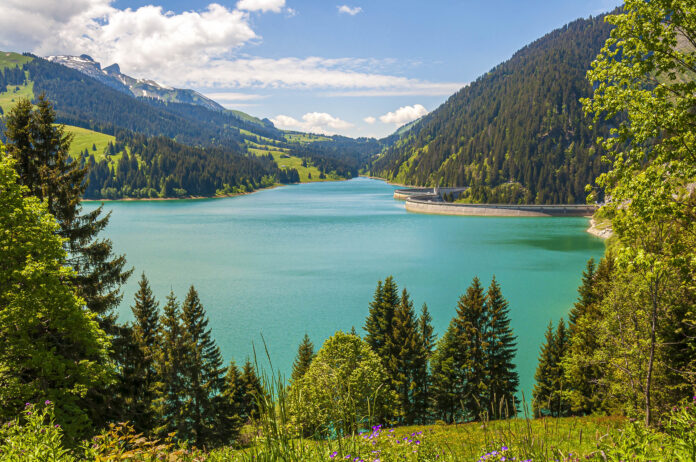Water is a vital resource for all life forms on our planet. However, the quality and quantity of water is strongly affected by climate change, which is driven by human activities such as the burning of fossil fuels and deforestation. These changes have a significant impact on both freshwater and saltwater ecosystems, including marine wildlife, and pose a serious challenge to human society.
Impact on freshwater resources
Climate change has a significant impact on the earth’s freshwater resources. One of the most obvious consequences is the change in precipitation patterns, leading to droughts in some regions and heavy rainfall in others. This can lead to water shortages in some areas and flooding in others, affecting the quality and availability of drinking water.
Changes in freshwater ecosystems
Freshwater ecosystems such as rivers, lakes and wetlands are sensitive to changes in water quality and quantity. The rise in water temperatures due to climate change can promote the growth of algae and cause a lack of oxygen in water bodies, which can lead to fish kills and the collapse of ecosystems.
Effects on human society
The changes in freshwater resources have a direct impact on human society. Water scarcity can lead to conflicts over water resources, while polluted water endangers the health of the population and increases the cost of water treatment.
Effects on saltwater ecosystems
Saltwater ecosystems such as seas and oceans are also affected by climate change. The rise in sea temperatures leads to coral bleaching and the death of coral reefs, which in turn destroys the habitat for a variety of marine life.
Acidification of the oceans
Another consequence of climate change is the acidification of the oceans due to increased CO2 emissions. This has a serious impact on marine organisms such as corals, mussels and plankton, which are sensitive to changes in pH.
Consequences for marine wildlife
The changes in freshwater and saltwater ecosystems have a significant impact on marine wildlife. Many species are dependent on specific habitats that are threatened by climate change. This can lead to a decline in biodiversity, the extinction of species and the loss of important food sources.
Consequences for humans
The changes in marine wildlife also have a direct impact on humans. Fishing and tourism, which depend on a diverse and healthy marine environment, are at risk. In addition, marine organisms play an important role in the global ecosystem and influence the climate, food production and human health.
Adaptation and mitigation measures
Urgent action is needed to mitigate the negative effects of climate change on water quality and quantity and on marine wildlife. This includes the reduction of greenhouse gas emissions, the protection and restoration of natural habitats, the sustainable management of water resources and the development of adaptation strategies for vulnerable communities.
Conclusion
Climate change has a profound impact on the quality and quantity of water resources worldwide and threatens the livelihoods of humans and animals. By taking targeted measures to protect and sustainably manage water resources and preserve marine biodiversity, we can mitigate the consequences of climate change and ensure a future worth living for generations to come.
Read also: Low groundwater and flooding: How do they go together?
Sources:
1. IPCC – “Climate Change 2021: The Physical Science Basis” – https://www.ipcc.ch/report/ar6/wg1/
2. National Oceanic and Atmospheric Administration (NOAA) – “Climate Change and Water Resources” – https://www.climate.gov/news-features/understanding-climate/climate-change-global-sea-level
3. World Wildlife Fund (WWF) – “Climate Change and Freshwater” – https://www.worldwildlife.org/threats/climate-change-and-freshwater
4. National Oceanic and Atmospheric Administration (NOAA) – “Ocean Acidification” – https://www.noaa.gov/education/resource-collections/ocean-coasts/ocean-acidification



